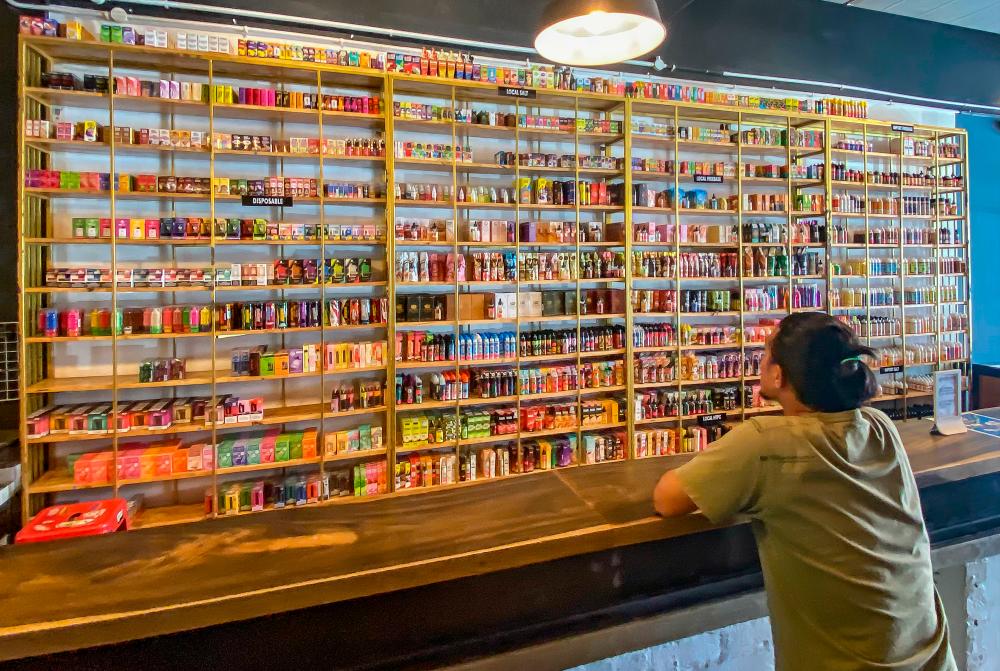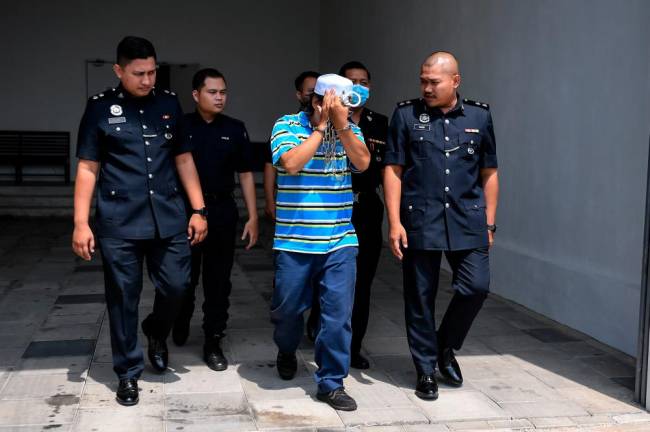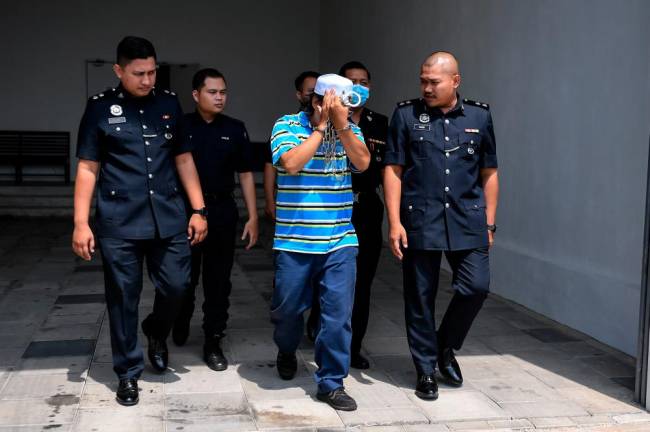PETALING JAYA: Concerned parents and educators are calling for tighter controls on the packaging and sale of vaping products to minors to prevent a rise in vaping among teenagers.
They pointed out that the colourful designs and fruity flavours available on the market are masking the health dangers of vaping.
A 41-year-old mother, Nalini Veeraiah, recently expressed shock when her nine-year-old son asked her for a vape device.
“The colourful design made it attractive to him. He was curious about vaping after having seen others doing it,” she said, adding that it was a good thing that her son approached her and did not buy it on his own or through his friends.
Nalini wants the government to step in to ensure that minors do not have access to such products.
Chemistry teacher Haslinda Samsuddin, 38, said vaping among school students is on the rise and spot checks are conducted regularly to ensure that vaping devices are not brought to school.
“The well-being of children at school is important to the board, which prohibits the sale of harmful items such as e-cigarettes and junk food,” she said.
“Our discipline teachers conduct spot checks on students twice or thrice a week.”
Haslinda said the checks were in addition to programmes her school holds annually to raise awareness on the dangers of smoking and ensuring a drug-free lifestyle among students.
“Given the prevalence of social media and various environmental factors, children may be vulnerable to certain influences that can impact their behaviour and beliefs.
“It is important for parents to be aware that vaping, in particular, has been linked to addiction, and can have adverse effects on a child’s social development,” she added.
Azry Ghazali, 67, a former parent-teacher association president of a primary school in Klang, felt that colourful vape devices look more like toys and are becoming more appealing to youngsters.
“Vaping among primary and secondary school students is a serious issue that requires continued attention and action by the authorities,” he said.
“While the government has taken steps to address the problem, parents and teachers must also play a role in educating young people about the dangers of vaping.
“The authorities should conduct random checks on shops such as stalls and supermarkets near schools. They could be selling these products to students.”
Following the removal of liquid nicotine from regulation under the Poisons Act 1952, the vape industry has experienced accelerated growth. This is said to have led to more assertive marketing tactics aimed at younger groups, including minors.
Lawyer Kokila Vaani Vadiveloo called for the industry to be regulated, and suggested that vape retailers ensure age verification protocols are followed when selling such items.
“It is disheartening to note that current Malaysian laws do not explicitly allow or explicitly ban e-cigarettes or vaping devices,” she said.
“Therefore, e-cigarettes and vaping devices exist without any regulations to govern their use or reduce their harm to vulnerable children or teenagers.
“The Control of Tobacco Product Regulations 2004 is known to govern the sale, distribution and advertising of tobacco products, including e-cigarettes. According to these regulations, it is an offence to sell or supply any tobacco products, including vape products, to individuals under the age of 18.
“Retailers selling vape products must train employees to understand age verification protocols and keep accurate records of sales. Providing training to employees on age verification procedures could also be helpful in preventing accidental sales to minors.”
Kokila Vaani urged retailers to prominently display signage warning against sales to those who are underage, limit access to vape products on the sales floor, request identification from all potential customers, and implement strict record-keeping protocols.
“It is also crucial for retailers to keep accurate records of sales transactions, including the date, time and details of each sale. This documentation can serve as evidence of compliance and may be required in case of inspections or audits,” she added.













